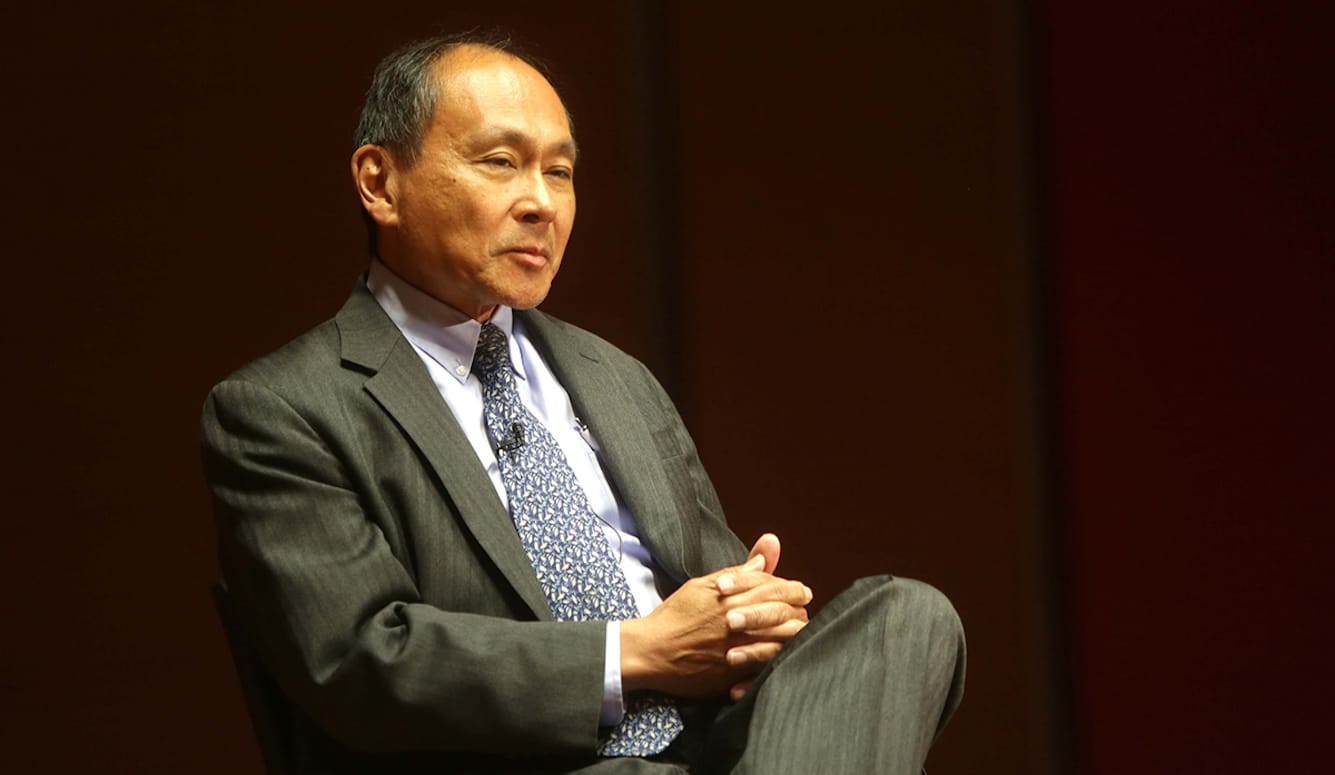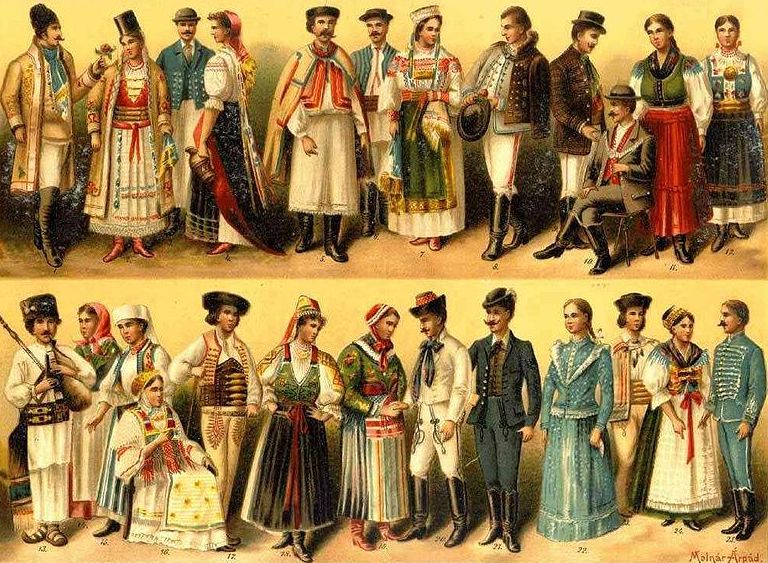Books
A Better Theory of the Human Soul
Beginning in the mid-2000s, the momentum toward an increasingly open and liberal world order began to falter, then went into reverse.

An extract from Identity: The Demand for Dignity and the Politics of Resentment (Farrar, Straus and Giroux, September 11, 2018)
Sometime in the middle of the second decade of the twenty-first century, world politics changed dramatically.
The period from the early 1970s through the mid-2000s witnessed what Samuel Huntington labeled the “third wave” of democratization as the number of countries that could be classified as electoral democracies increased from about 35 to more than 110. In this period, liberal democracy became the default form of government for much of the world, at least in aspiration if not in practice.
In parallel to this shift in political institutions was a corresponding growth of economic interdependence among nations, or what we call globalization. The latter was underpinned by liberal economic institutions such as the General Agreement on Tariffs and Trade and its successor, the World Trade Organization. These were supplemented by regional trade agreements such as the European Union and the North American Free Trade Agreement. Throughout this period, the rate of growth in international trade and investment outpaced global GDP growth and was widely seen as the major driver of prosperity. Between 1970 and 2008, the world’s output of goods and services quadrupled and growth extended to virtually all regions of the world, while the number of people living in extreme poverty in developing countries dropped from 42 percent of the total population in 1993 to 17 percent in 2011. The percentage of children dying before their fifth birthdays declined from 22 percent in 1960 to less than five percent by 2016.
This liberal world order did not, however, benefit everyone. In many countries around the world, and particularly in developed democracies, inequality increased dramatically, such that many of the benefits of growth flowed primarily to an elite defined primarily by education. Since growth was related to the increasing volume of goods, money, and people moving from one place to another, there was a huge amount of disruptive social change. In developing countries, villagers who previously had no access to electricity suddenly found themselves living in large cities, watching TV or connected to the internet via ubiquitous cell phones. Labor markets adjusted to new conditions by driving tens of millions of people across international borders in search of better opportunities for themselves and their families, or else seeking to escape intolerable conditions at home. Huge new middle classes arose in countries such as China and India, but the work they did replaced work that had been done by older middle classes in the developed world. Manufacturing moved steadily from Europe and the United States to East Asia and other low-labor-cost regions. At the same time, women were displacing men in an increasingly service-dominated new economy, and low-skilled workers were being replaced by smart machines.
Beginning in the mid-2000s, the momentum toward an increasingly open and liberal world order began to falter, then went into reverse. This shift coincided with two financial crises, the first originating in the U.S. subprime market in 2008 that led to the subsequent Great Recession, and the second emerging over the threat to the euro and the European Union posed by Greece’s insolvency. In both cases, elite policies produced huge recessions, high levels of unemployment, and falling incomes for millions of ordinary workers around the world. Since the United States and the EU were the leading exemplars, these crises damaged the reputation of liberal democracy as a whole.
The democracy scholar Larry Diamond has characterized the years after the crises as ones of a “democratic recession,” in which the aggregate number of democracies fell from their peak in virtually all regions of the world. A number of authoritarian countries, led by China and Russia, became much more self-confident and assertive: China began promoting its “China model” as a path to development and wealth that was distinctly undemocratic, while Russia attacked the liberal decadence of the European Union and the United States. A number of countries that had seemed to be successful liberal democracies during the 1990s slid backward toward more authoritarian government, including Hungary, Turkey, Thailand, and Poland. The Arab Spring of 2011 disrupted dictatorships throughout the Middle East, but then profoundly disappointed hopes for greater democracy in the region as Libya, Yemen, Iraq, and Syria descended into civil war. The terrorist upsurge that produced the September 11 attacks was not defeated by the U.S. invasions of Afghanistan and Iraq. Rather, it mutated into the Islamic State, which emerged as a beacon for profoundly illiberal and violent Islamists around the world. What was as remarkable as ISIS’s resilience was that so many young Muslims left lives of comparative safety elsewhere in the Middle East and Europe to travel to Syria to fight on its behalf.

More surprising and perhaps even more significant were the two big electoral surprises of 2016, Britain’s vote to leave the European Union and the election of Donald J. Trump as president of the United States. In both cases, voters were concerned with economic issues, particularly those in the working class who had been exposed to job loss and deindustrialization. But just as important was opposition to continued large-scale immigration, which was seen as taking jobs from native-born workers and eroding long-established cultural identities. Anti-immigrant and anti-EU parties gained strength in many other developed countries, most notably the National Front in France, the Party for Freedom in the Netherlands, the Alternative for Germany, and the Freedom Party in Austria. Across the Continent there were both fears of Islamist terrorism and controversies over bans on expressions of Muslim identity such as the burka, niqab, and burkini.
Twentieth century politics had been organized along a left–right spectrum defined by economic issues, the Left wanting more equality and the Right demanding greater freedom. Progressive politics centered around workers, their trade unions, and social democratic parties that sought better social protections and economic redistribution. The Right by contrast was primarily interested in reducing the size of government and promoting the private sector. In the second decade of the twenty-first century, that spectrum appears to be giving way in many regions to one defined by identity. The Left has focused less on broad economic equality and more on promoting the interests of a wide variety of groups perceived as being marginalized—blacks, immigrants, women, Hispanics, the LGBT community, refugees, and the like. The Right, meanwhile, is redefining itself as patriots who seek to protect traditional national identity, an identity that is often explicitly connected to race, ethnicity, or religion.
A long tradition dating back at least as far as Karl Marx sees political struggles as a reflection of economic conflicts, essentially as fights over shares of the pie. Indeed, this is part of the story of the 2010s, with globalization producing significant populations of people left behind by the overall growth that occurred around the world. Between 2000 and 2016, half of Americans saw no gains to their real incomes; the proportion of national output going to the top one percent went from 9 percent of GDP in 1974 to 24 percent in 2008.
But as important as material self-interest is, human beings are motivated by other things as well, motives that better explain the disparate events of the present. This might be called the politics of resentment. In a wide variety of cases, a political leader has mobilized followers around the perception that the group’s dignity had been affronted, disparaged, or otherwise disregarded. This resentment engenders demands for public recognition of the dignity of the group in question. A humiliated group seeking restitution of its dignity carries far more emotional weight than people simply pursuing their economic advantage.
Thus, Russian president Vladimir Putin has talked about the tragedy of the collapse of the former Soviet Union, and how Europe and the United States had taken advantage of Russia’s weakness during the 1990s to drive NATO up to its borders. He despises the attitude of moral superiority of Western politicians and wants to see Russia treated not, as President Obama once said, as a weak regional player, but as a great power. Viktor Orbán, the Hungarian prime minister, stated in 2017 that his return to power in 2010 marked the point when “we Hungarians also decided that we wanted to regain our country, we wanted to regain our self-esteem, and we wanted to regain our future.” The Chinese government of Xi Jinping has talked at length about China’s “one hundred years of humiliation,” and how the United States, Japan, and other countries were trying to prevent its return to the great power status it had enjoyed through the past millennia of history. When the founder of al-Qaeda, Osama bin Laden, was fourteen, his mother found him fixated on Palestine, “tears streaming down his face as he watched TV from their home in Saudi Arabia.” His anger at the humiliation of Muslims was later echoed by his young co-religionists volunteering to fight in Syria on behalf of a faith they believed had been attacked and oppressed around the world. They hoped to re-create the glories of an earlier Islamic civilization in the Islamic State.

Resentment at indignities was a powerful force in democratic countries as well. The Black Lives Matter movement sprang from a series of well-publicized police killings of African-Americans in Ferguson (Missouri), Baltimore, New York, and other cities and sought to force the outside world to pay attention to the experience of the victims of seemingly casual police violence. On college campuses and in offices around the country, sexual assault and sexual harassment were seen as evidence of men not taking women seriously as equals. Sudden attention was paid to transgender people, who had previously not been recognized as a distinct target of discrimination. And many of those who voted for Donald Trump remembered a better time in the past when their place in their own societies was more secure and hoped through their actions to “make America great again.” While distant in time and place, the feelings among Putin’s supporters over the arrogance and contempt of Western elites were similar to those experienced by rural voters in the United States who felt that the urban bicoastal elites and their media allies were similarly ignoring them and their problems.
The practitioners of the politics of resentment recognize one another. The sympathy that Vladimir Putin and Donald Trump have for each other is not just personal, but rooted in their common nationalism. Viktor Orbán explained, “Certain theories describe the changes now taking place in the Western world and the emergence on the stage of a U.S. president as a struggle in the world political arena between the transnational elite—referred to as ‘global’—and patriotic national elites,” of which he was an early exemplar.
In all cases a group, whether a great power such as Russia or China or voters in the United States or Britain, believes that it has an identity that is not being given adequate recognition—either by the outside world, in the case of a nation, or by other members of the same society. Those identities can be and are incredibly varied, based on nation, religion, ethnicity, sexual orientation, or gender. They are all manifestations of a common phenomenon, that of identity politics.
The terms identity and identity politics are of fairly recent provenance, the former having been popularized by the psychologist Erik Erikson during the 1950s, and the latter coming into view only in the cultural politics of the 1980s and ’90s. Identity has a wide number of meanings today, in some cases referring simply to social categories or roles, in others to basic information about oneself (as in “my identity was stolen”). Used in this fashion, identities have always existed.
In this book, I will be using identity in a specific sense that helps us understand why it is so important to contemporary politics. Identity grows, in the first place, out of a distinction between one’s true inner self and an outer world of social rules and norms that does not adequately recognize that inner self’s worth or dignity. Individuals throughout human history have found themselves at odds with their societies. But only in modern times has the view taken hold that the authentic inner self is intrinsically valuable, and the outer society systematically wrong and unfair in its valuation of the former. It is not the inner self that has to be made to conform to society’s rules, but society itself that needs to change.
The inner self is the basis of human dignity, but the nature of that dignity is variable and has changed over time. In many early cultures, dignity is attributed only to a few people, often warriors who are willing to risk their lives in battle. In other societies, dignity is an attribute of all human beings, based on their intrinsic worth as people with agency. And in other cases, dignity is due to one’s membership in a larger group of shared memory and experience.
Finally, the inner sense of dignity seeks recognition. It is not enough that I have a sense of my own worth if other people do not publicly acknowledge it or, worse yet, if they denigrate me or don’t acknowledge my existence. Self-esteem arises out of esteem by others. Because human beings naturally crave recognition, the modern sense of identity evolves quickly into identity politics, in which individuals demand public recognition of their worth. Identity politics thus encompasses a large part of the political struggles of the contemporary world, from democratic revolutions to new social movements, from nationalism and Islamism to the politics on contemporary American university campuses. Indeed, the philosopher Hegel argued that the struggle for recognition was the ultimate driver of human history, a force that was key to understanding the emergence of the modern world.
While the economic inequalities arising from the last 50 or so years of globalization are a major factor explaining contemporary politics, economic grievances become much more acute when they are attached to feelings of indignity and disrespect. Indeed, much of what we understand to be economic motivation actually reflects not a straightforward desire for wealth and resources, but the fact that money is perceived to be a marker of status and buys respect. Modern economic theory is built around the assumption that human beings are rational individuals who all want to maximize their “utility”—that is, their material well-being—and that politics is simply an extension of that maximizing behavior. However, if we are ever to properly interpret the behavior of real human beings in the contemporary world, we have to expand our understanding of human motivation beyond this simple economic model that so dominates much of our discourse. No one contests that human beings are capable of rational behavior, or that they are self-interested individuals who seek greater wealth and resources. But human psychology is much more complex than the rather simpleminded economic model suggests. Before we can understand contemporary identity politics, we need to step back and develop a deeper and richer understanding of human motivation and behavior. We need, in other words, a better theory of the human soul.
This extract appears courtesy of Farrar, Straus and Giroux. Copyright © 2018 by Francis Fukuyama. Featured pic courtesy of Fronteiras do Pensamento






